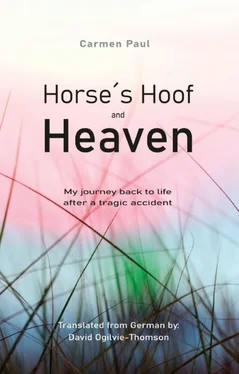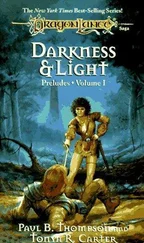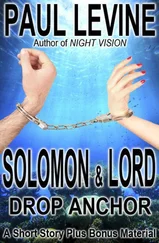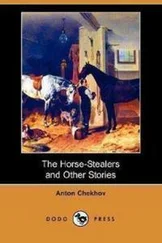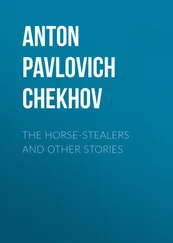My grandmother filled the apples for baking and pushed them into the warming plate; my grandad sat next to the oven peeling the apples one after the other with infinite patience. I can remember the apple trees outside, and how they blossomed in the spring, the apples growing in summer, ripening in the autumn; and when the time was right my granddad brought them all in a basket into the house.
I was fascinated just how granddad was able to peel the apples into one long strand of apple peel. The best part came when I was allowed to eat all these strands of apple peel, one after the other, followed by eating the baked apples, laced with custard. This taste and aroma I still carry around in my mouth and nostrils even today.
I can really appreciate just how valuable it was that both my grandma and granddad really gave me quality time then that I really needed. Now being a grandmother myself I know just how to savour that, with my granddaughter living nearly two hundred miles away – just how many times I have yearned for my dear little sweetie.
When I was six years old, I had to go to school for the first time; at that time there was also school in Saturdays. On a particular Saturday in the winter, the 12th December 1965 to be precise, I suddenly got up from my chair, and started to cry, declaring that “I had to get back home”, my granddad had just died ! Poor teacher, what was she supposed to do? She asked one of the boys who lived in the neighbourhood to accompany me back home.
He brought me to the front door, and I went upstairs. We were living at that time in a quite large old farmhouse in the middle of Löbau, a small town in Saxony. Once in our flat there, I saw my mother crying, declaring that “granddad had died”.
I said, “I know”, and retreated to my room. Even to this day, fifty years later I can sense the pain of this loss.
I don’t know whether my granddad was a born-again Christian with Jesus in his life. However, I do know that he suffered more after the war under the communist dictatorship than he did in the war itself. He had no education and had never killed anyone in the war. He started off as a farmhand, then a stable lad, progressing to be a farmer, responsible for all livestock on the farm, and on top of that he trained young men as farmers. This was conditional on him being a member of the Nazi party; likewise, in the Communist era, he would also have been deemed to be a member of the communist party too.
After the war someone had sullied his name due to his former membership of the Nazi party, resulting in him being sent to the coal mines in Aue; years later he returned home very ill. All this I got to hear about years after his death from my grandmother. My granddad never gave me any indication that this was the case, nor expressed his sentiments about this.
From my days at school
Those days at school were challenging for me as a child. Looking back, I can see the funny side of things, but I also harboured bad memories too. I had a particularly acute sense of right and wrong, which made me unpopular. I can’t recall all the bad things that went on, but one incident comes back to mind.
There was a boy in my class with thick round spectacles, and one day my woman teacher was simply teasing him about them. Being just eight at the time I couldn’t understand how adults could be so cruel to treat children like this, so when this teacher started up I strongly felt the injustice. I shouted at the teacher in front of the class.
This escalated pretty fast when the lady shrieked back at me that I should keep quiet! In the process I made it quite plain that it was no business of hers to tease people, let alone children.
I was determined to make myself heard loud and clear with my voice echoing round the class, till the teacher hit me in the jaw. I reacted to this quite uncontrollably due to the pain, slapping her in the face without giving it a moment’s thought, simultaneously kicking her in the shins, resulting in her collapsing in a heap on the floor. She had to take three weeks off work as a result. However, I was never punished!
I had another experience with this woman teacher which I remember well. I was now in the second year at school and was generally an ‘intelligent’ girl. Every morning at the start of school we would pass through a large glass swing door. Every time this teacher would greet each one of the pupils in turn, some kindly and others indifferently – it seemed to me that even teachers had their favourites.
Whenever it was my turn I was told to stop and remain there, and glibly recite “good morning Mrs Teacher” looking her in the eye, which I did obediently, although well aware of what was going to ensue. Every time the teacher looked at me, she complained that “I hadn’t washed my eyes yet again, otherwise they would be reflected in the glass door and dazzle her”.
I had no idea what was really going on, but my resentment of this grew uncontrollably from day to day. Of course, my eyes were naturally as dark as ever, but I obediently trudged straight along to the washroom and furtively washed them there.
However, on this particular day I didn’t do this. I slipped through the glass door in front of her nose, grabbed a medium sized marble, and hurled it into the glass door, which promptly shattered into a thousand pieces. I then issued the teacher with the pert remark “now you can’t be dazzled anymore”! This time my audacity had surprisingly pleasant results. My teacher didn’t pick on me at all after that and became very careful in her dealings with me.
A year later when I was perhaps nine years old, I experienced something else that gave me cause for reflection. My stepfather already had been telling me about his time in the war. He had been posted to Stalingrad and gave me a graphic account of all that he’d experienced there during that time.
However what he told me face to face and the account we were taught at school seemed at odds with each other – at school the Germans were always portrayed as the “baddies”, and the Russian soldiers were, of course the “heroes”. I grasped quite quickly from this nothing was sacred in war, and people just behaved how they wanted towards their enemies. There were evil men on both sides.
My stepfather had survived only because he appeared to be dead. For days on end they had nothing to eat, and there was virtually no drinking water to be had. During the house to house fighting he stumbled across a crate of wine in one of the cellars. They drank all the contents of this being so desperately thirsty – when he woke up from it all they were being transported for dead in a lorry made for prisoners of war. In this way, he survived the war, but he always impressed upon me that war is the worst thing that can befall mankind, especially when it came to the children caught up in it all.
One day I was walking home with one of my schoolmates, and he took it upon himself to paint swastikas on the walls of the houses as we went by. I explained to my friend Peter what I was told about the war from my stepfather, and what I had learnt from it.
However, the inevitable happed: the boy was seen in the process of painting swastikas, and the police were duly informed. They appeared at the door of the boy that evening. They arrested him on the spot, his mother being unmarried, and he was packed off straight off to a reformatory.
At that time I wasn’t able to appreciate what had happened, but years later it is quite obvious now: the Communists had treated him in exactly the same way they would have done to those Nazi party members during the war. Years later Peter committed suicide; it’s perfectly plain that the way he was treated at this institution was at the bottom of it all, resulting in his death like this.
Читать дальше
